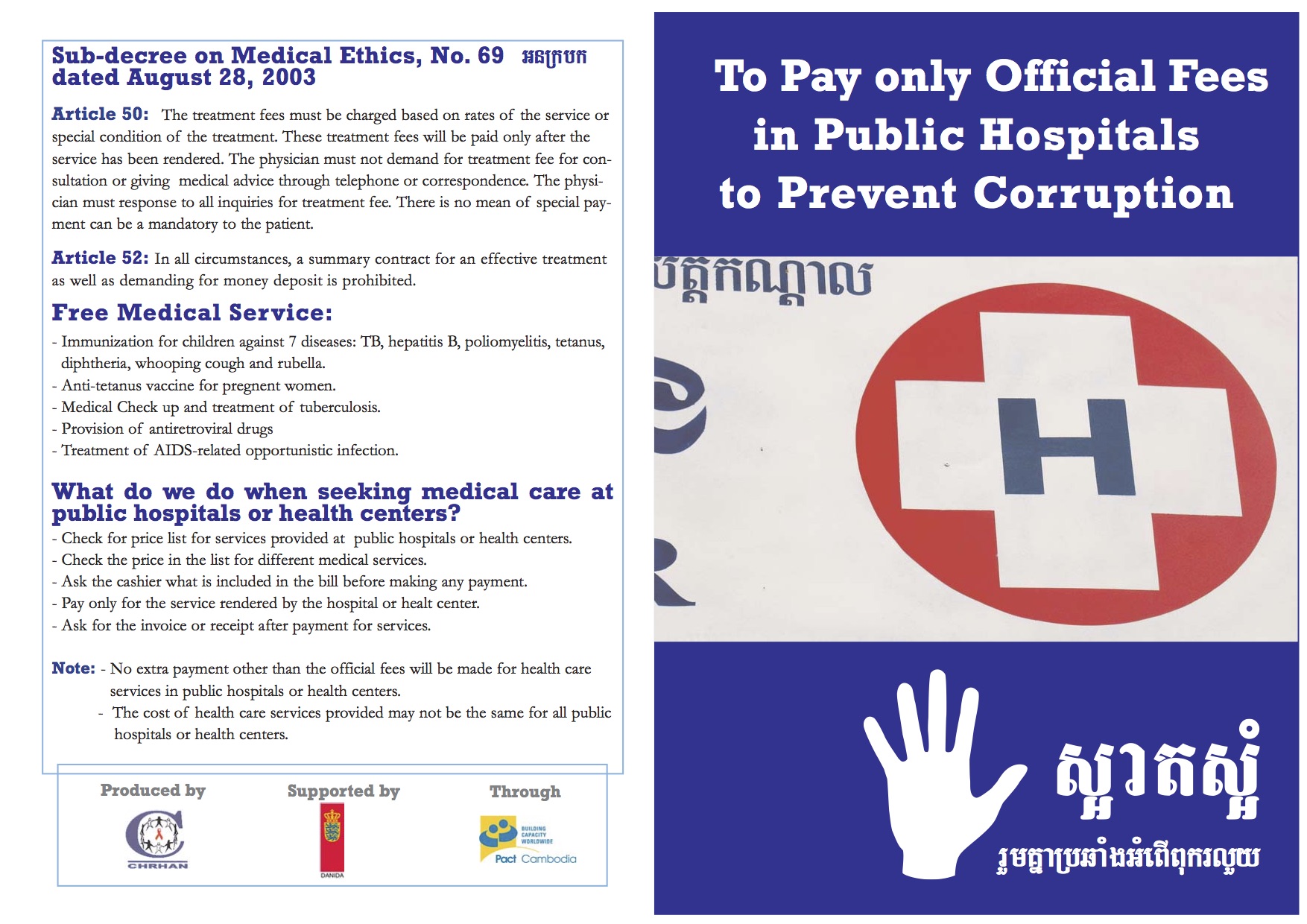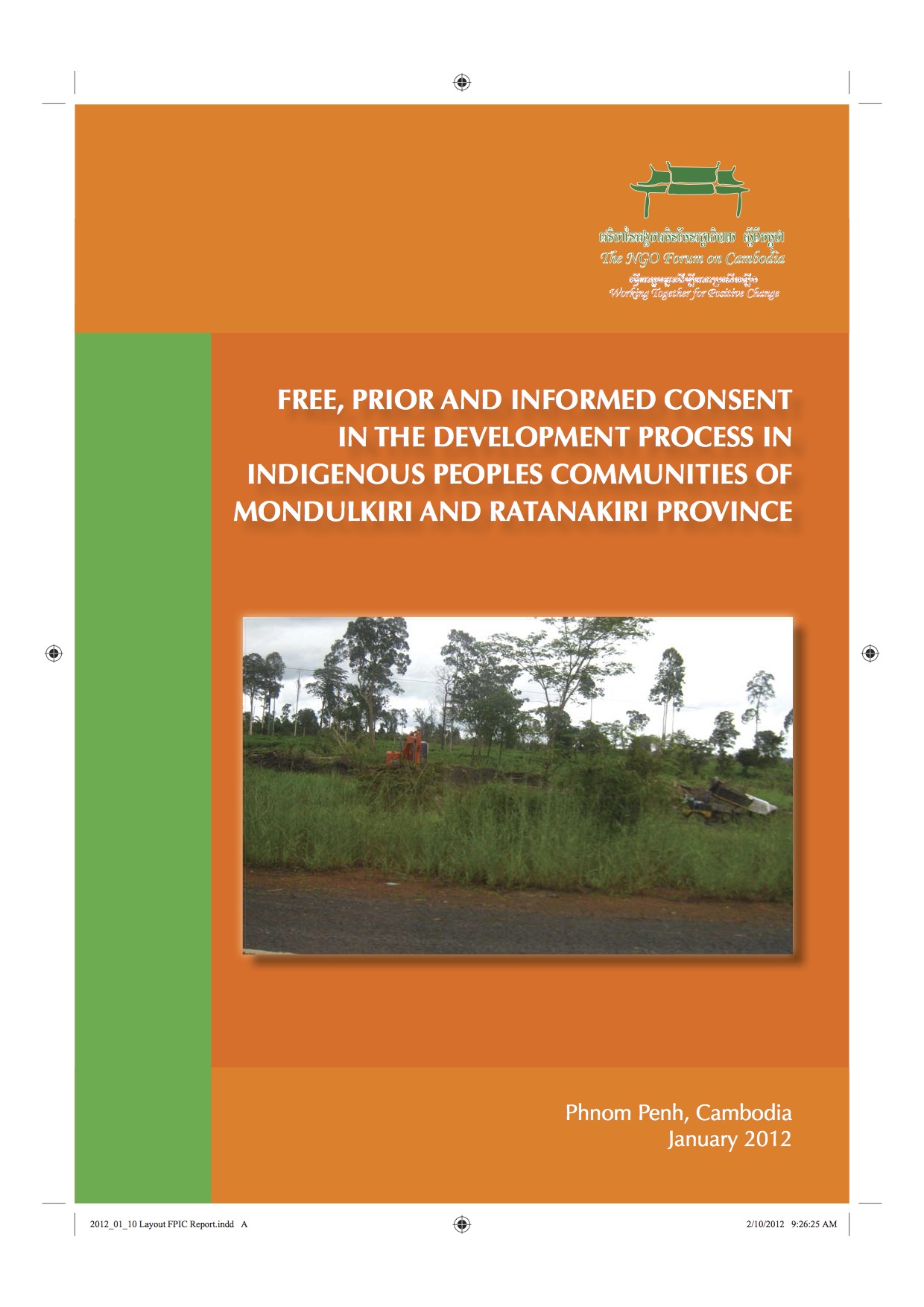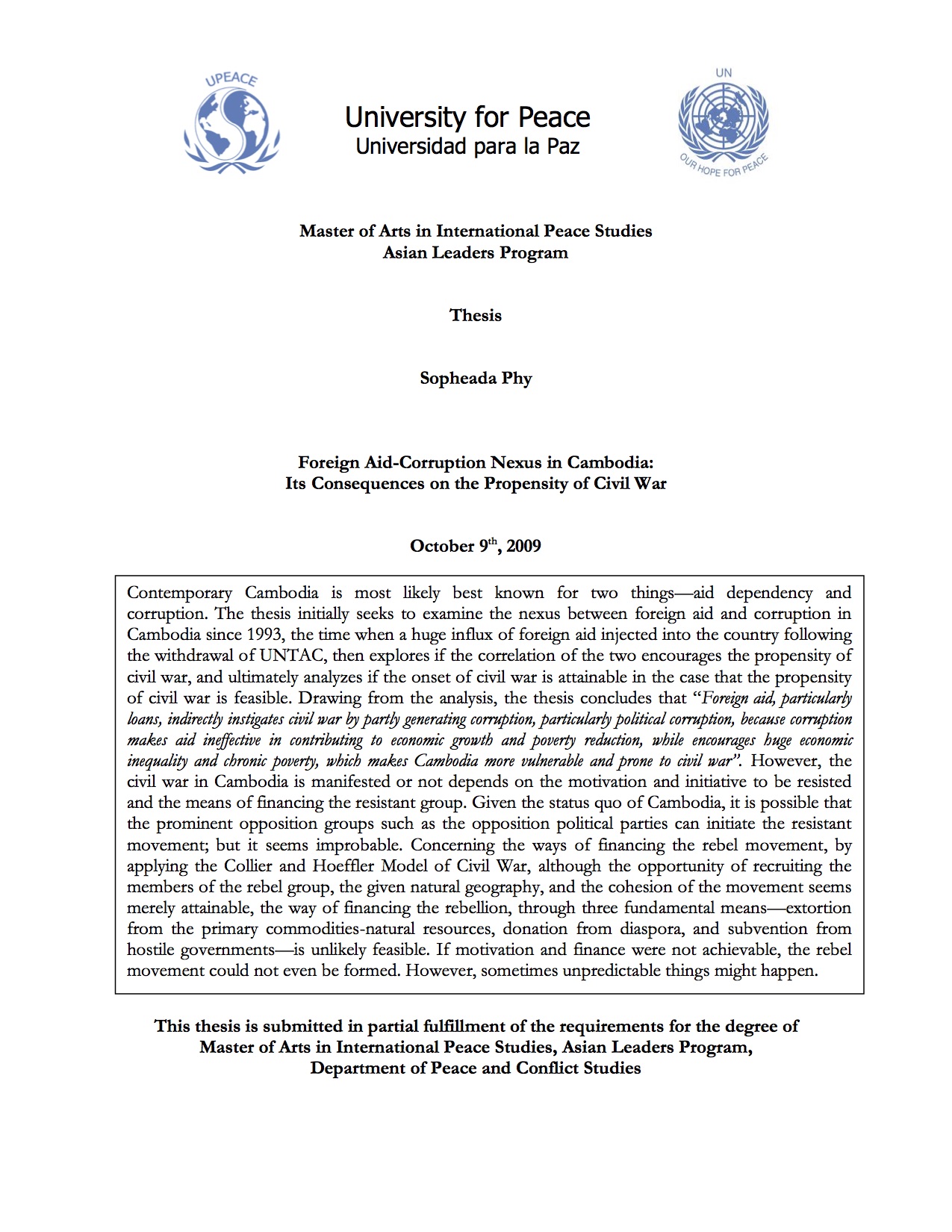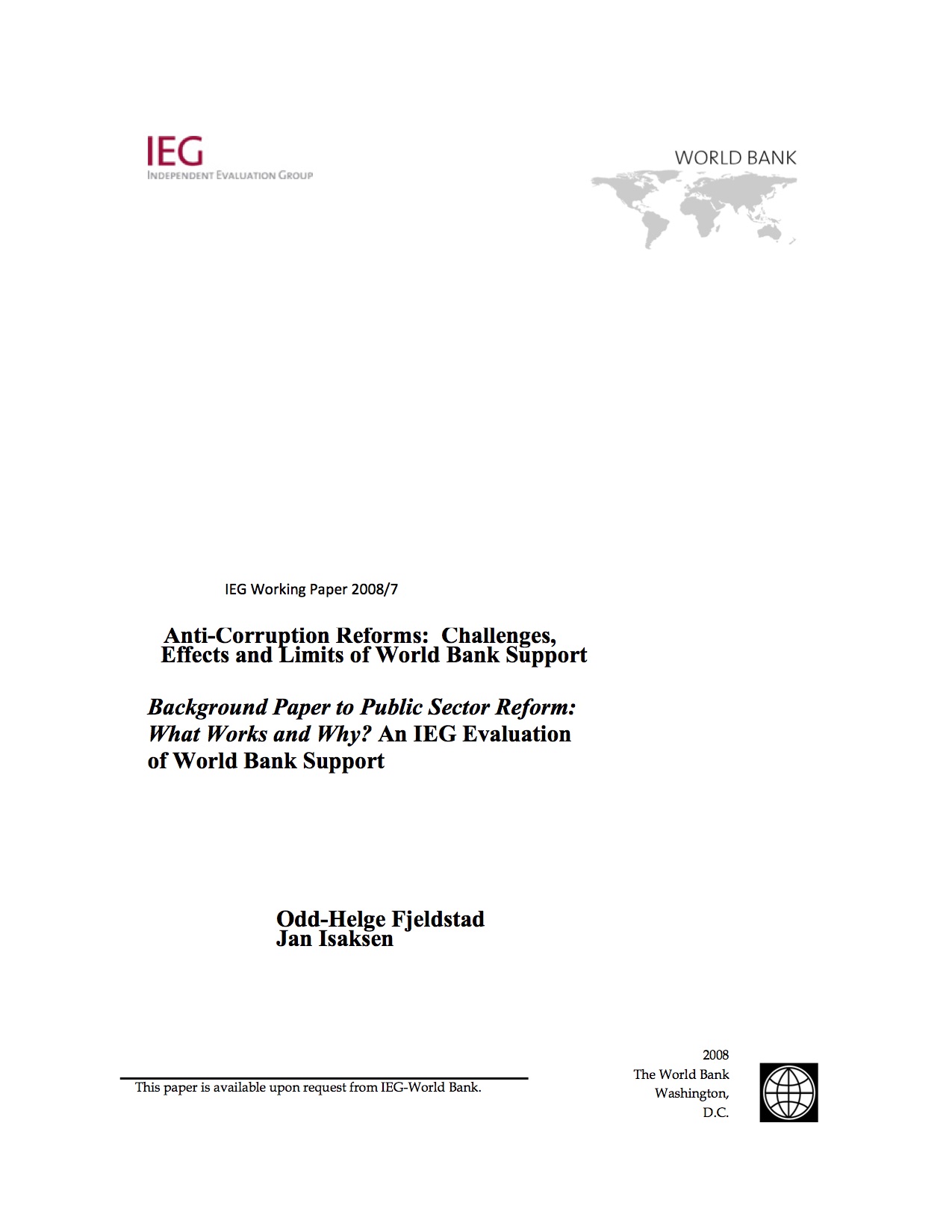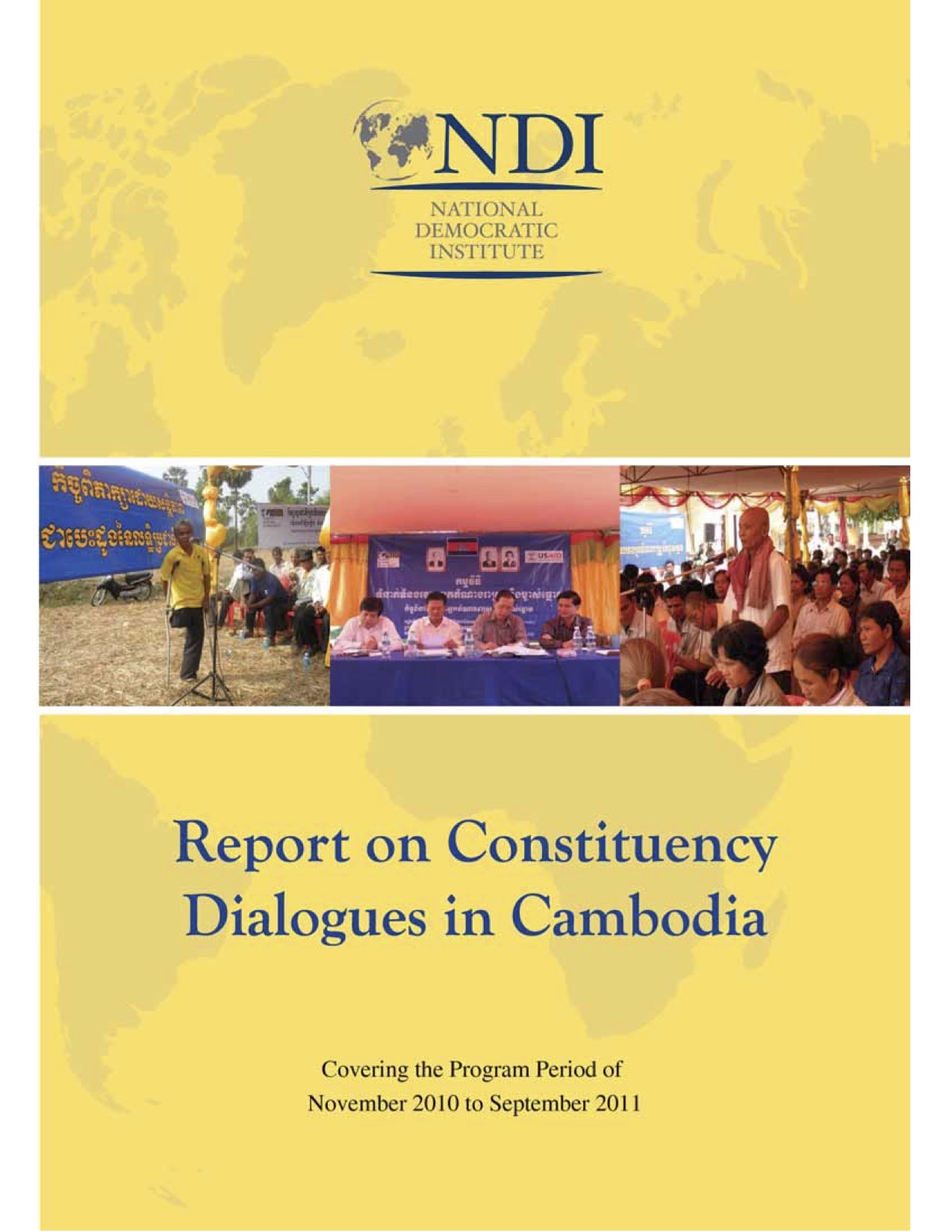Latest Entries
To Pay only Official Fees in Public Hospitals to Prevent Corruption
Publication Year: ---- / Sources: Clean CambodiaFighting corruption is a central part of our Government’s “Rectangular Strategy” for Growth, Employment, Equity and Efficiency. During the First Cabinet Meeting of the Third Legislature of the National Assembly, Prime Minister Hun Sen stated, “The key thrust of the Royal Government of Cambodia’s strategy to fight corruption is to take concrete actions that attack the roots of corruption”.
Free, Prior and Informed Consent in the Development Process in Indigenous Peoples Communities of Mondulkiri and Ratanakiri Province
Publication Year: 2012 / Sources: The NGO Forum on CambodiaThis paper presents case studies of four indigenous communities in Cambodia’s Ratanakiri and Mondulkiri provinces that are facing economic land concessions (ELCs) and/or mining licences granted on their land. The case studies present the perspectives of Indigenous People (IP) communities, local government authorities, and civil society.
Foreign Aid-Corruption Nexus in Cambodia: Its Consequences on the Propensity of Civil War
Publication Year: 2009 / Sources: University for PeaceContemporary Cambodia is most likely best known for two things—aid dependency and corruption. The thesis initially seeks to examine the nexus between foreign aid and corruption in Cambodia since 1993, the time when a huge influx of foreign aid injected into the country following the withdrawal of UNTAC, then explores if the correlation of the two encourages the propensity of civil war, and ultimately analyzes if the onset of civil war is attainable in the case that the propensity of civil war is feasible. Drawing from the analysis, the thesis concludes that “Foreign aid, particularly loans, indirectly instigates civil war by partly generating corruption, particularly political corruption, because corruption makes aid ineffective in contributing to economic growth and poverty reduction, while encourages huge economic inequality and chronic poverty, which makes Cambodia more vulnerable and prone to civil war”.
Anti-Corruption Reforms: Challenges, Effects and Limits of World Bank Support
Publication Year: 2008 / Sources: The World BankThis study compares the evolution of the state-of-the-art in research and analysis of anti- corruption and transparency with World Bank practice. The first part of the paper reviews the theoretical and empirical approaches that have influenced the World Bank’s and the donor community’s thinking on how to diagnose and fight corruption. Also covered are interventions and diagnostic tools that have been developed to improve governance and assess corruption, as well as recent Bank-supported international initiatives to curb grand corruption. Thereafter, the paper analyzes experiences from the Bank’s engagement in anti-corruption, drawing on the results of 19 country case studies covering developing and transitional countries. From the country cases it appears that anti-corruption measures are too often proposed by the Bank without considerations of the political economy and without clear strategies to win the support of a critical mass of key leaders who would help overcome the inevitable opposition of vested interests.
Report on Constituency Dialogues in Cambodia
Publication Year: 2011 / Sources: National Democratic Institute (NDI)More than 11,000 citizens (almost 50 percent of them women) and 35 national legislators (including seven women) attended the 24 constituency dialogues between November 2010 and September 2011. Across 12 provinces, dialogue participants echoed the same three problems affecting their lives: land conflicts; infrastructure and irrigation needs; and corruption and unequal enforcement by local authorities. Inequity was the underlying theme of these problems, and participants expressed their concern that the rich and powerful received all the benefits – land, development, and justice. Across provinces, people reported the pervasive influence of money on all aspects of life and the sense that they were losing their country to foreign companies and private interests. One participant described how government policies “always favored rich people” and asked, “Do rich businesspeople control the government or does the government control businesspeople?”

